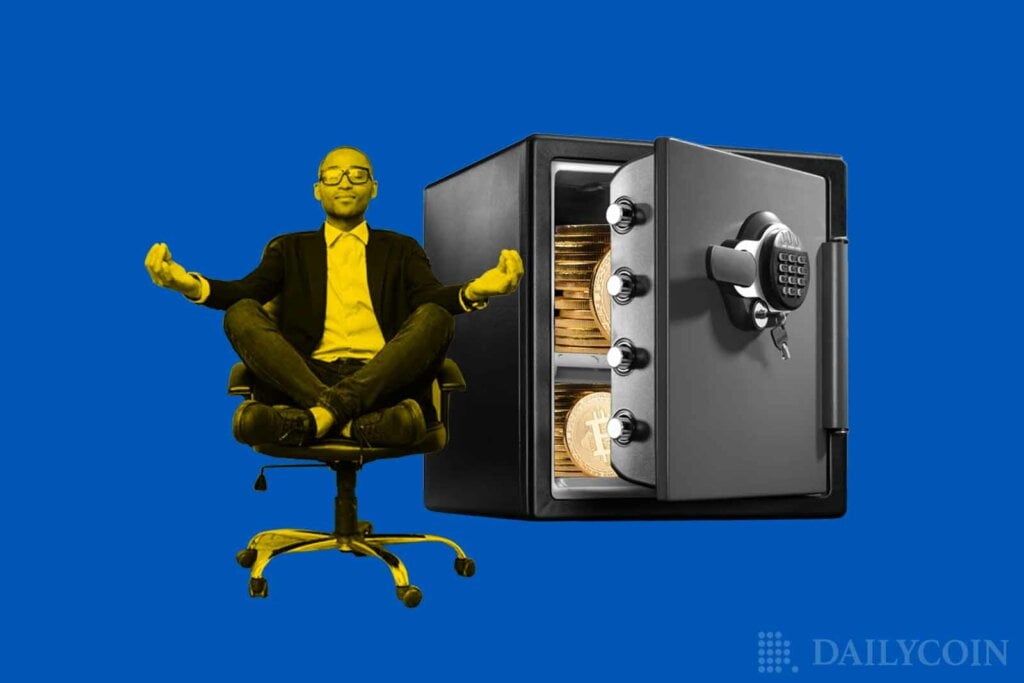- DeFi protocols and other crypto traders are massively acquiring hardware wallets to deal with the wave of hacks rocking the crypto industry.
- These physical wallets provide real protection to users against hacker attacks.
- Adam Lowe of CompoSecure Inc. believes that the crypto winter has created an “elevated awareness for consumers to protect their digital assets.”
To face the growing wave of thefts to cryptocurrency trading platforms, crypto merchants are massively acquiring devices to store funds such as hardware wallets or “cold wallets,” which has triggered sales of companies that manufacture this type of device.
The increase in cybercrime has not only triggered the hiring of cybersecurity and network auditing companies, but also the purchases of these wallets not connected to the internet (offline), which better protect crypto assets.
A clear example of how this business is moving is the French startup Ledger. The company’s daily sales grew an incredible 400%, just 24 hours after the recent massive theft of Solana’s blockchain-based virtual wallets.
The attack, which generated losses of more than 5.2 million dollars, caused an immediate increase in demand for these products, said Ian Rogers, the company’s director of experience.
Secure Storage of Crypto Funds
Hardware wallets are considered to be the safest places to store cryptocurrencies. They are hard drives in which the user can store their private access codes. Because the funds are not exposed to hacks or flaws detected by exploits, they provide companies and their customers with a higher degree of protection.
Another purse manufacturer that saw a rapid increase in sales was Ellipal. The Hong Kong-based company sold 30% more wallets and got 50% more traffic to its website, following the Solana wallets hack, a company spokesperson said.
Similarly, sales of KeepKey’s hardware wallet grew by about a third after this attack, according to the company’s chief technology officer, who goes by the alias “pastaghost.”
Ledger's Rogers said "These things remind people that security and self-custody are important." Demand for the company's offline wallets grew both through its website and in-person sales at stores that distribute its products.
On the Flipside
- After the collapse of Voyager Digital Ltd. and Celsius Network Ltd., fear has grown among users to keep their money on these lending platforms, KeepKey’s pastaghost revealed.
- The fear that an attack or the bankruptcy of one of these companies could complicate fund withdrawals has forced them to acquire hardware wallets.
The director of products and innovation at wallet maker CompoSecure Inc., Adam Lowe, believes that the crypto crash has created an “elevated awareness for consumers to protect their digital assets.”
This year, the Arculus wallet developed by CompoSecure also benefited from a surge in demand. The cold wallet looks like a physical credit card, both in size and thickness.
Now centralized crypto exchanges, including Binance and Coinbase Global Inc., are offering their customers different digital wallet options. However, these platforms control the access codes of their clients.
Why You Should Care
- For pastaghost, if the user does not manage the access keys to the cryptocurrency trading platforms, in reality, he does not own the funds.
- Physical wallets provide effective protection to users against the attacks to which DeFi protocols are permanently subjected.
- The only problem is that they are more expensive, ranging from $50 to $300.
“A hardware wallet is the most secure way to store your crypto,” recommends Austin Federa, head of communications at the Solana Foundation. “And it’s a really good idea for everyone who has serious amounts of wealth, however you define that, in crypto," he adds.
Similar stories on DailyCoin:
Solana-Based Wallet Will Burn NFTs To Protect Customers From Scammers
Cybersecurity, Hacks and Scams, zz_index, zz_popular, zz_top, Crypto Heists, crypto traders, Hardware WalletRead More



